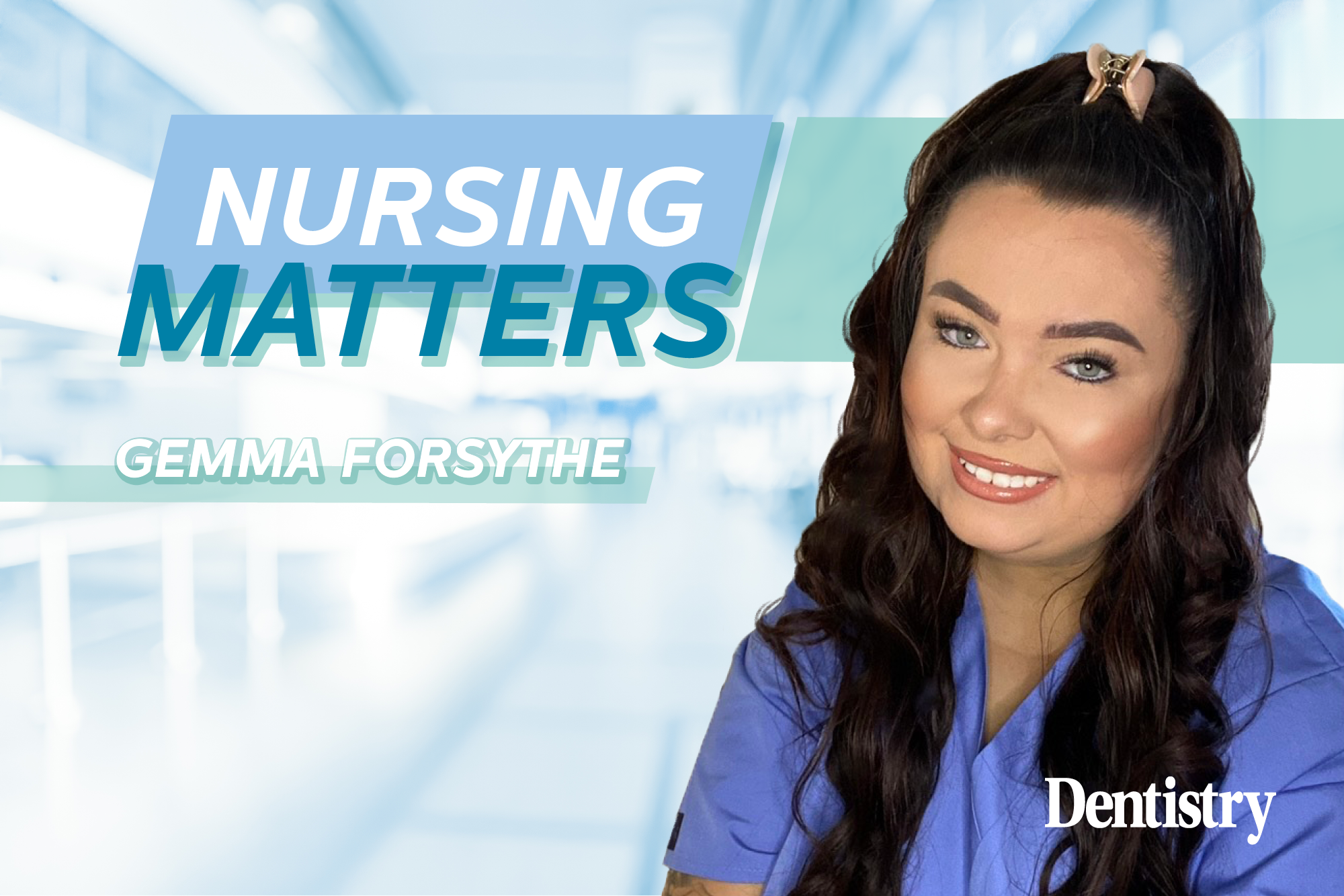
Give me a break! Gemma Forsythe discusses the many pressures of dental nursing, such as the inability to take breaks, staff shortages, and burnout.
A survey was conducted by Dental Protection of over 1,300 dental professionals in the UK and the results have now been published.
Around 35% of dental professionals are unable to take breaks during their working day to eat or drink. Not getting breaks at work can have a detrimental effect on mental health including (but not limited to) burnout, fatigue, stress and anxiety. Having a break during a work day is a basic need and it is unacceptable that there are dental professionals not getting that.
Not only do breaks help create a more engaged workforce and improve job satisfaction, but according to Health Assured’s website, employees are entitled to ‘at least 20 minutes’ break when they work for more than six hours (although you may allow for longer or more frequent breaks).
Yvonne Shaw, Dental Protection deputy dental director said: ‘Dental professionals are among the most dedicated healthcare professionals, so I am not surprised that many put the concerns of their patients before their own. However, not stopping to eat and drink is concerning both for the health of the dental team and the adverse impact this can have on the delivery of care.’
Pressures of dental nursing storage
The survey found that 46% of dental professionals worry about the impact of staff shortages on the delivery of quality care. It is no secret that there is and has been a dental nursing shortage for quite a while now and there are many different reasons why a dental nurse would choose to change career or leave their current workplace.
Staff shortages put so much pressure on the remaining staff who often have to compensate for the missing staff members leading to burnout, fatigue and stress. High stress levels can have a domino effect, causing conflict within the dental team as tensions are higher with everyone taking on extra duties or working longer hours.
Shaw also said: ‘One of the many problems with staff shortages is the knock-on effect on the mental health of remaining staff who risk becoming exhausted and/or demotivated. Over half of our members tell us they are worrying about how exhaustion and burnout are impacting the safe delivery of patient care.
‘The effect of not being able to provide optimum standards of care on any healthcare professional’s mental health – due to external factors and pressures outside of their control – cannot be overstated.’
Maintaining optimum staffing levels is a challenge for dental practices but it is important for the wellbeing of the dental team. For example, strengthening recruitment efforts, working to boost staff retention and supporting staff who are off sick to return to the workplace when they are ready to.
Patient care impact
Around 52% of dental professionals worry about the impact of exhaustion or burnout on patient care, the survey has found. It is important to maintain a good work-life balance and to regularly also practice self-care. We spend so much time ensuring our patients and clinicians are okay that we forget to check-in with ourselves. Signs of burnout can include exhaustion, loss of motivation and reduced work performance.
Ways that we can try to prevent burnout in addition to maintaining a good work-life balance is to try to eat a balanced diet, get plenty of sleep and get some form of exercise during the day such as walking your dog, going to the gym or playing a sport. Ensure you are making use of your holidays as everyone needs a break now and again.
I think it is also an employer’s role to look out for signs of burnout within their workforce and ensure that the employee(s) are getting the help and support that they need.
Creating a supportive and open organisational culture is an important step to preventing or reducing burnout within your dental practice. Holding wellbeing conversations with staff enables them to know they can seek support when and if they need it. Promote wellbeing and the importance of self-care, perhaps you could even arrange some kind of relaxation themed team bonding activity.
Dental Protection benefits
Dental Protection offer a free counselling service via a third party which operates 7 days a week, 24 hours a day. You can find more information on this here. It also offers a wellbeing hub for members which gives access to a range of different wellbeing resources including podcasts, webinars and more. You can find out more information here.
Here are additional benefits it provides for dental nurses:
- Legal advice and representation
- Access to an expert legal team
- Out of hours emergency support 24/7 for dentolegal issues
- Patient complaint support
- Risk management resources
- Professional development courses and workshops.
If you are a dental nurse who is looking for a new indemnity provider, you can get a quote from Dental Protection here.
Catch up with previous Nursing Matters columns:
- Addressing menopause in the dental practice
- Domestic abuse: is it any of our business in dentistry?
- From dental nurse to client experience manager: finding your strengths
- Let’s talk dental therapy
- Why are dental nurses leaving the profession?
Follow Dentistry.co.uk on Instagram to keep up with all the latest dental news and trends.


